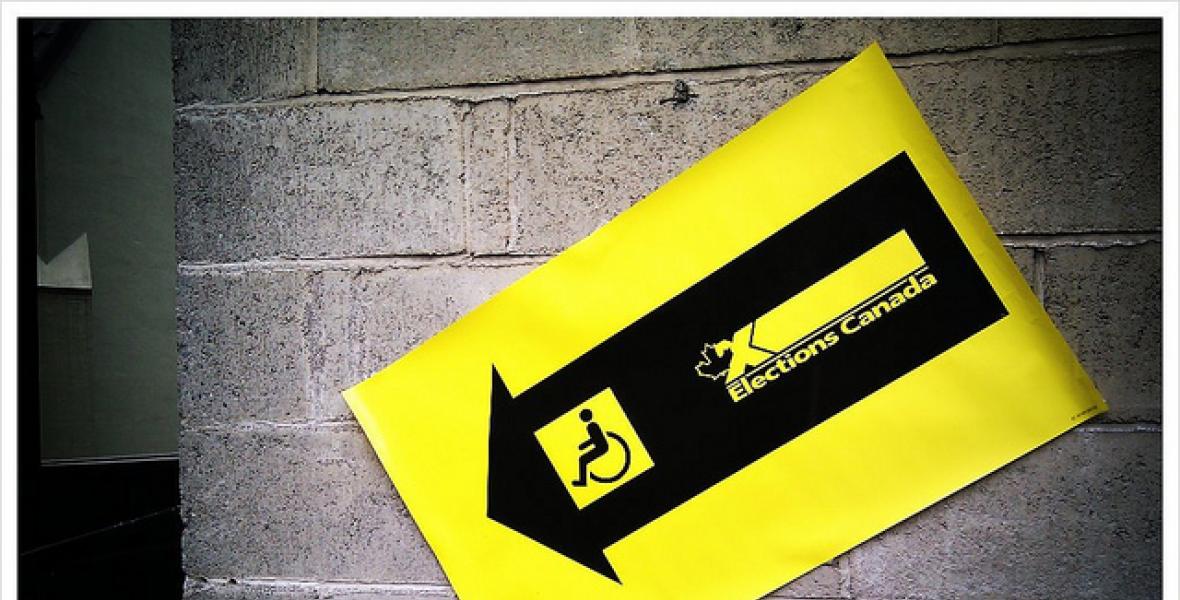It is not often that groups like the Council of Canadians and the Canadian Federation of Students have cause to give enthusiastic and unqualified praise to the Trudeau government. But they did so this week, when Bill C-76, the Liberals’ Elections Modernization Act, passed in the Senate.
Young Canadians and progressive groups like the Council of Canadians have been deeply disappointed by Justin Trudeau’s failure to live up to many of his ambitious democratic reform promises. Notable among those is the solemn promise to replace the first-past-the-post voting system with one that is more representative and equitable.
With C-76, however, the Liberals have more than lived up to at least one big set of promises.
The bill rolls back the most odious provisions of the Harper government’s oxymoronically entitled Fair Elections Act, and brings in other measures to make the electoral process truly fairer and more accessible to all.
The council of Canadians and the student federation are particularly pleased with four of C-76’s provisions.
The bill restores the use of the Voter Information Cards as valid identification for voting. Elections Canada provides a card to all voters.
It reinstates the time-honoured practice of allowing a voter to vouch for another voter by confirming their identity.
It moves the chief electoral enforcement officer, the Commissioner of Elections, out of the federal prosecutor’s office – which reports to the justice minister – back to the non-partisan Elections Canada.
And it abolished restrictions on Elections Canada to engage in public education on the voting process and the right to vote.
U.S. style voter suppression comes north
When Stephen Harper’s Democratic Reform Minister Pierre Poilievre introduced his Fair Elections Act early in 2014, he claimed it would get big money out of politics and improve the electoral process.
That was a misstatement of Orwellian proportions.
In fact, following the example of their Republican Party friends south of the border, and heeding the advice of U.S.-based conservative consultants, the Harper Conservatives’ aim was to suppress the vote of those unlikely to support them: the young, the poor and Indigenous.
Until 2006, there had been no requirement for voters to provide ID in Canada. The Harper minority government introduced that measure early in its tenure, and Elections Canada decided to allow voters to use voter information cards it sends to everyone on the voters’ list. The Chief Electoral Officer, Marc Mayrand, pointed out that these cards are “the most accurate and widely available government document.” In 2014, Harper’s minister decided to ban use of the cards, thus making it harder for people who have no driver’s licence or other ID with street address to vote. More than 4 million adult Canadians do not have driver’s licences.
Historically when a voter – often elderly or poor – lacked proper ID, another qualified voter could sign a declaration vouching for that voter’s identity. The Harper government decided to abolish the practice, much to the chagrin of Elections Canada. In the 2011 election, Mayrand reported, vouching was used more than 120,000 times.
Not long after the 2011 election, Postmedia reporters Stephen Maher and Glen McGregor broke the so-called robo-call scandal.
Political operatives had arranged for computer-generated phone calls to tens of thousands of voters, purporting to come from Elections Canada and telling them, falsely, their polling places had been moved. This was a voter suppression tactic borrowed directly from the U.S. and it severely annoyed the Chief Electoral Officer.
To put a stop once and for all to this dangerous, imported form of electoral abuse, Mayrand recommended the powers of his chief enforcement officer, the Commissioner of Elections, be enhanced. For instance, he proposed that the commissioner have the power to compel witnesses to testify under oath.
Harper’s government not only ignored the recommendations, it did the exact opposite. It took authority over enforcement away from non-political Elections Canada and gave it to a partisan politician. Amazingly, Poilievre claimed that Elections Canada could not be a neutral referee because it wore a “team jersey.”
The Harper government was so hostile to Elections Canada that it did not even want the Chief Electoral officer to be able to inform Canadians of suspected fraud, like false robo-calls, or to encourage them to vote. In an unprecedented move, Harper’s minister severely curtailed the right of Chief Electoral Officers to communicate with Canadians. The Fair Elections Act limited Elections Canada’s communications to telling Canadians where and when they could vote — full stop.
Limits on third-party advertising and extended voting hours
The Trudeau government’s just-passed bill eliminates all of these anti-democratic Harper-era measures.
And it does more.
It limits the election campaign period to 50 days, imposes strict rules on third-party political advertising, gives the power to compel testimony to the chief enforcement officer, and extends voting hours on advanced polling days.
C-76 is a positive response to the multiple howls of outrage Harper’s Fair Elections Act elicited. The Council of Canadians and the Canadian Federation of Students even went to court to get a number of the Harper law’s provisions declared unconstitutional.
The Achilles heel for Trudeau’s Bill C-76 is that a future government could revive the Harper Conservatives’ attack on the right to vote.
Had Trudeau lived up to his promise to end first-past-the-post, the possibility of hard right leaders winning a majority of seats, when 39 per cent of the electorate ardently supports them but 61 per cent equally ardently opposes them, would be unlikely.
But Trudeau chose to keep our current system. There will be nothing to stop a future prime minister winning an essentially unearned majority and then taking aim at the voting process once again.
Photo: flickr/ Dennis S. Hurd
Karl Nerenberg has been a journalist and filmmaker for more than 25 years. He is rabble’s politics reporter.
Help make rabble sustainable. Please consider supporting our work with a monthly donation. Support rabble.ca today for as little as $1 per month!



